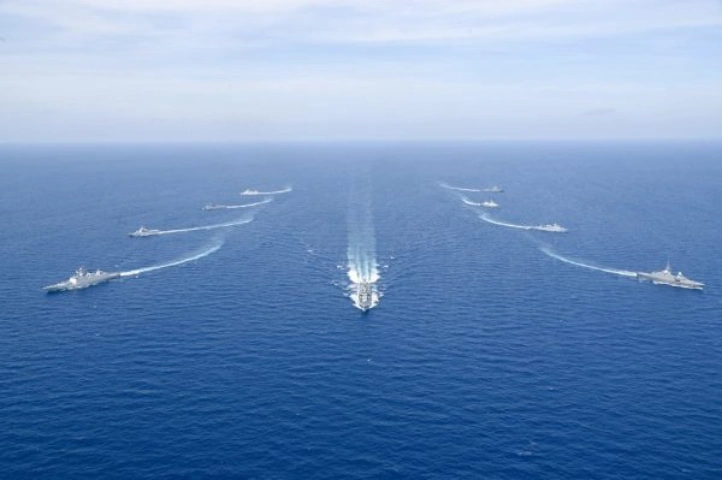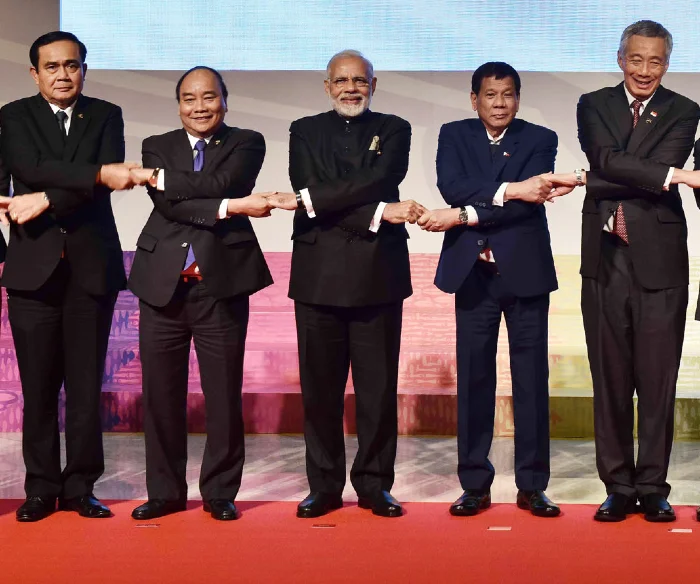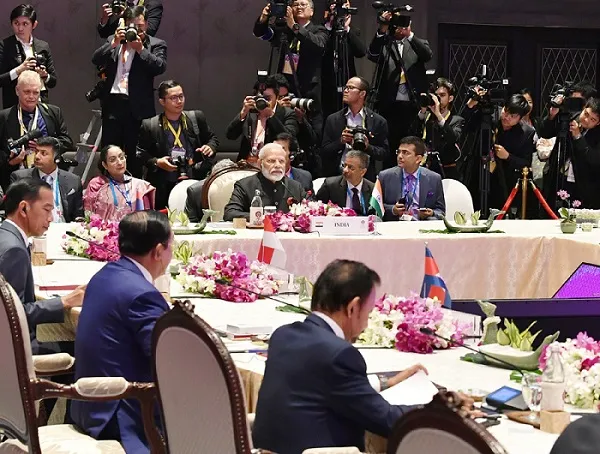Prime Minister Narendra Modi’s decision to travel to Indonesia just ahead of next week’s significant G20 Leaders’ Summit in New Delhi sends a strong message on the value India attaches to engagement with the countries of the Southeast Asian region and its vision for the wider Indo-Pacific under the current geopolitical scenario.
PM Modi will be travelling to Jakarta on a two-day visit starting September 6 to attend the 20th ASEAN-India Summit and 18th East Asia Summit being hosted by Indonesia as current Chair of Association of Southeast Asian Nations (ASEAN).
India, which currently holds the Presidency of the G20 – a premier global forum for international economic cooperation – will be hosting the leaders’ summit of the grouping in New Delhi on September 9-10 which will be attended by several top leaders of the world, including the US President Joe Biden.
The ASEAN-India Summit will be the first since the elevation of India-ASEAN relations to a Comprehensive Strategic Partnership in 2022 and will review the progress of India-ASEAN relations and chart the future direction of cooperation.
Hosted by Indonesian President Joko Widodo, the East Asia Summit would provide an opportunity for the leaders of ASEAN countries and its eight dialogue partners, including India, to exchange views on issues of regional and global significance.

Acknowledging that the international and regional landscape is undergoing “profound changes with rising instability and uncertainty”, China on Friday announced that the country’s Premier Li Qiang will attend the 26th China-ASEAN Summit, the 26th ASEAN Plus Three (APT) Summit and the 18th East Asia Summit to be held in Jakarta.
India believes that a strong and unified ASEAN plays an important role in the emerging dynamic of the Indo-Pacific and firmly supports ASEAN centrality and the ASEAN outlook on the region.
ASEAN countries remain an important pillar of India’s Act East policy and key partner of its Indo-Pacific Vision underlined by PM Modi’s Security and Growth for All in the Region (SAGAR) initiative.
The Ministry of External Affairs (MEA) has maintained that India’s engagement with the ASEAN has been driven by three goals – enhancing connectivity (physical, digital and people-to-people business) between India and ASEAN; strengthening the ASEAN organisation; and, expanding practical cooperation in the maritime domain.
New Delhi has also welcomed Indonesia’s efforts in mainstreaming of ASEAN’s Outlook on Indo-Pacific (AOIP) and its planned implementation through the ASEAN Indo-Pacific Forum.
“AOIP’s convergence with the Indo-Pacific Oceans Initiative, or IPOI, provides a strong basis for our cooperation in this regard,” remarked External Affairs Minister S Jaishankar at the opening session of the ASEAN Post Ministerial Conference with India in Jakarta in July.

“As comprehensive strategic partners, we look forward to working with ASEAN in further expanding our partnership to include newer areas while strengthening existing corporations. And I refer here especially to cyber, financial and maritime security domains,” he added.
Enhancing maritime cooperation has also been one of the priorities of Indonesia’s ASEAN Chairmanship in 2023 as it launched last month the ASEAN Maritime Outlook (AMO) – a strategic document which will be a compass for ASEAN in determining the direction of maritime cooperation in the future.
As highlighted in the AOIP, Southeast Asia lies at the centre of and serves as the conduit linking the Asia-Pacific and Indian Ocean regions, which are among the most dynamic regions in the world and hubs of economic growth. The importance of the region’s sea lines of communications (SLOC) is underlined by the fact that 60 percent of maritime trade passes through Asia, with the South China Sea carrying an estimated one-third of global shipping.
Concerned about China’s strategic expansion into the South China Sea, several countries of the region are now spotlighting the importance of sustaining defence engagement with India and like-minded partner countries.
Without mentioning China during his address to the Joint Sitting of the US Congress in Washington this June, PM Modi said that “dark clouds of coercion and confrontation” are casting their shadow in the Indo Pacific and the stability of the region has become one of the central concerns of India-US partnership.
“We share a vision of a free, open and inclusive Indo Pacific, connected by secure seas, defined by international law, free from domination, and anchored in ASEAN centrality. A region where all nations, small and large, are free and fearless in their choices, where progress is not suffocated by impossible burdens of debt, where connectivity is not leveraged for strategic purposes, where all nations are lifted by the high tide of shared prosperity,” he said.




















